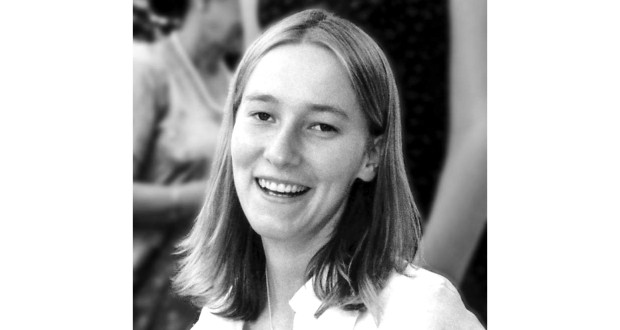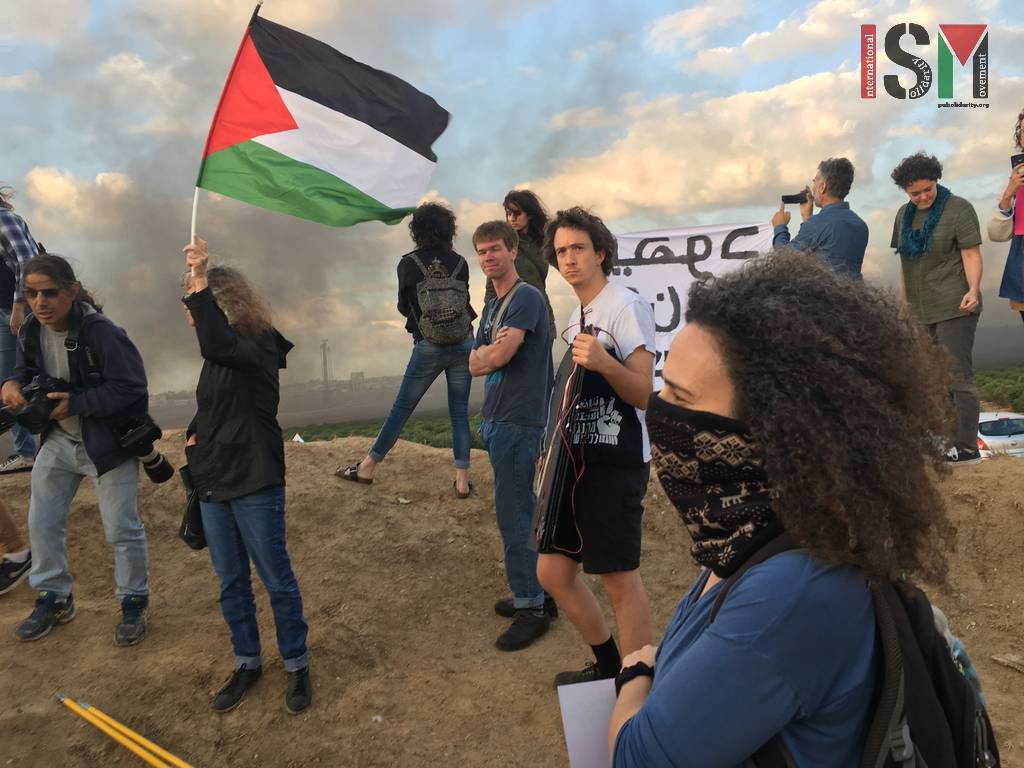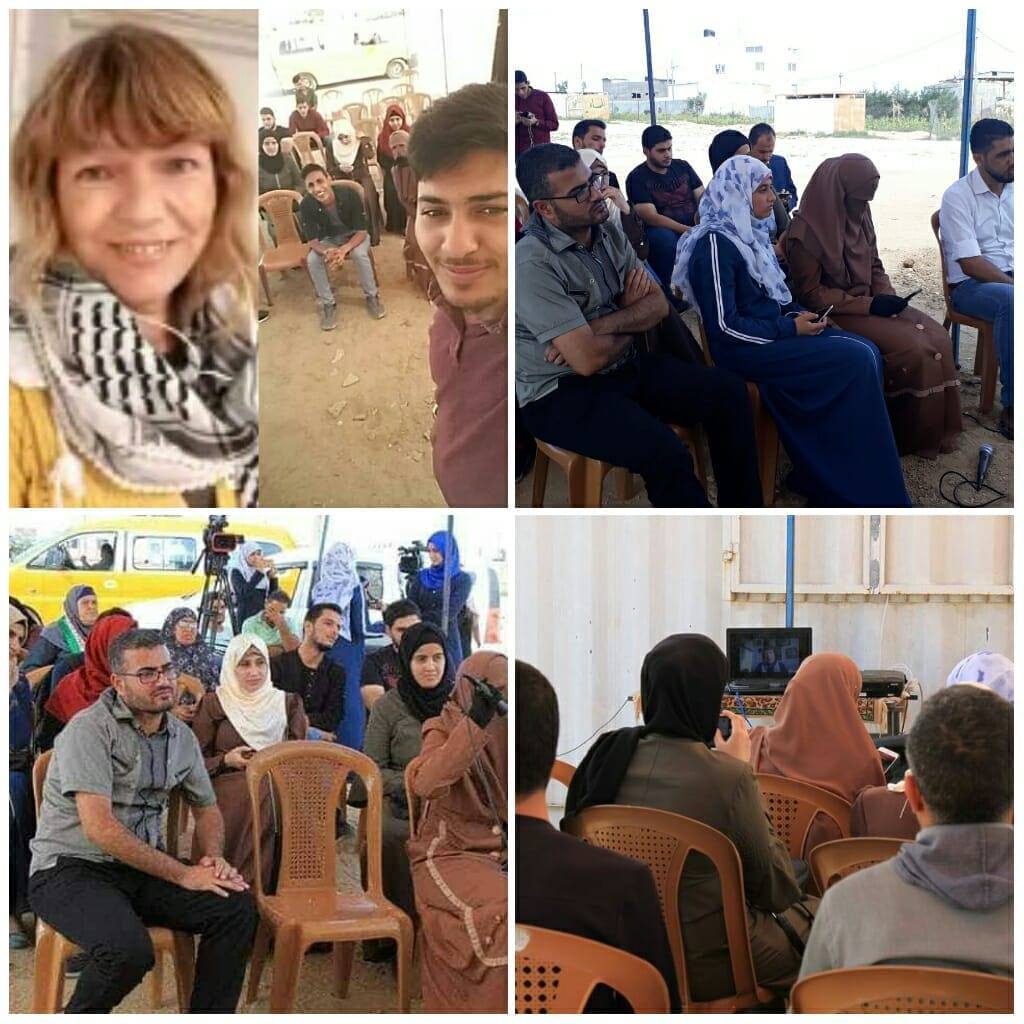Tag: Gaza
-
Remembering Rachel Corrie
16th March 2019 | International Solidarity Movement, occupied Palestine Today marks the sixteenth anniversary since the passing of ISM activist Rachel Corrie. She was 23 at the time of her passing. Rachel was tragically crushed to death under the front blade of an Israeli military Caterpillar bulldozer near Rafah, in the southern region of the Gaza Strip. Rachel…
-
2 realities
29st October 2018 | International Solidarity Movement, Ramallah Team | Gaza, occupied Palestine Last Friday, nearly fifty Israeli and ISM protestors demonstrated at the Gaza Border in solidarity with nearly 15,000 Gaza protestors heading toward the border. This action was in conjunction with the weekly Right of Return March. As the activists were confronted by…
-
Israeli and International Activists Join Gazan Protestors in the Great Return March
October 10 2018 | Wafa Aludini, International Solidarity Movement | Gaza, occupied Palestine On the morning of October 10, 2018, ten activists from around the world delivered messages of support to the Great March of Return in the Eastern Gaza Strip via Skype, as a part of a ‘virtual rally’ entitled “Words Over Walls.” The…



